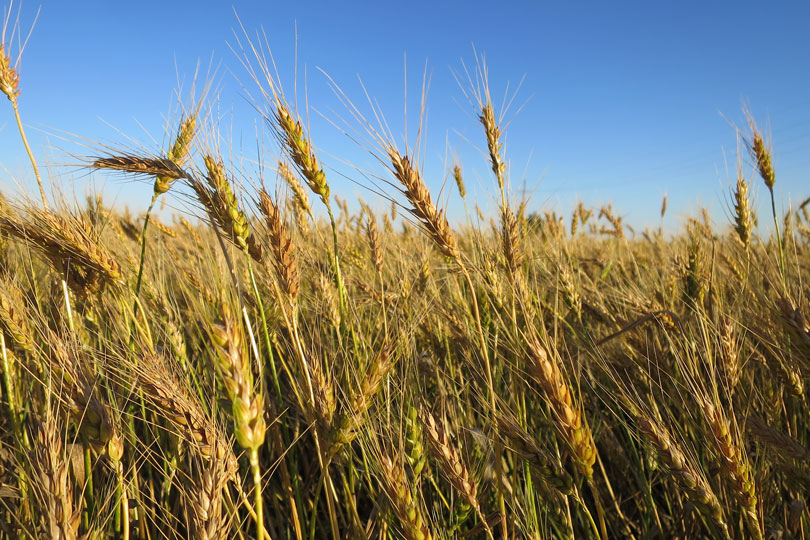By Jessica Domel
Multimedia Reporter
The nation is one step closer to new farm and nutrition legislation. Shortly before 5 p.m. Thursday, June 28, the U.S. Senate passed its farm bill, the Agriculture Improvement Act of 2018.
“With 171 amendments and a vote of 86-11, obviously getting this farm bill done has been a tremendous team effort,” Sen. Pat Roberts, chair of the Senate Committee on Agriculture, Nutrition and Forestry, said after the bill’s passage.
Senator Debbie Stabenow, the committee’s Ranking Member, said the Senate’s farm bill passage proves that bipartisanship is the way to get things done.
“It’s not always the easiest path to take. However, when we put our differences aside and focus on the needs of the communities, the people that we serve, that’s how we deliver a good bill,” Stabenow said. “In this case, it’s a bill that serves our farmers, our families and rural America.”
More than 500 food, agriculture and conservation leaders agree the bill will provide certainty to communities and farmers, according to Stabenow.
“The Senate pushed the farm bill one big step closer to the finish line, and it could not have come at a better time,” Zippy Duvall, American Farm Bureau Federation president and Georgia farmer, said. “America’s farmers and ranchers continue to face a challenging agricultural economy, a shaky outlook for our export markets and a dire ag labor shortage. It was time for some good news and the Senate delivered it in bipartisan fashion.”
Both Texas Senators, John Cornyn and Ted Cruz, voted in favor of the five-year legislation.
“Approval by the U.S. Senate of its farm bill adds more momentum to this process. We’re encouraged,” Texas Farm Bureau President Russell Boening said. “We very much appreciate both Senator John Cornyn and Senator Ted Cruz for their support of the Senate bill.”
The farm bill impacts many areas beyond food production, Cornyn said.
“It promotes conservation of farm land and watersheds. Foreign food aid programs are reauthorized as part of this bill and will lay down the policy that affects the management of our nation’s forests,” Cornyn said. “I’m especially pleased with this year’s farm bill and its impact on my home state and the presiding officer’s (at the time, Ted Cruz) home state of Texas.”
This year’s farm bill includes provisions including seed cotton in farm bill safety net programs. Seed cotton was left out of Title 1 in the 2014 bill, hurting cotton farmers across the country.
Earlier this year, a provision in the bipartisan budget act authorized the inclusion of seed cotton for the remained of the 2014 Farm Bill to help cotton farmers who were dealing with drought, a global cotton glut and depressed commodity prices.
“This year’s bill also retains and strengthens the Price Loss Coverage program to help provide Texas agricultural producers with stability through unpredictable weather and natural disasters,” Cornyn said. “Finally, the bill promotes animal health and reauthorizes disease research programs, including a crucial one that will help the U.S. Department of Agriculture provide research to contain the spread of the cattle fever tick.”
The Senate farm bill calls for a new program to replace the Dairy Margin Protection Program, which was not as effective for dairy farmers as intended.
It would also create stronger trade promotion programs, rural development and research programs.
Additional funding to increase Conservation Reserve Program acres to 25 million is also included.
“Agriculture and farming are vital to the fabric of our nation and are an enduring legacy of the great state of Texas. Resources like crop insurance provide farmers with an economic safety net for their efforts to feed and supply their fellow Americans, in good times and bad, and ensure food security for our nation,” Cruz said.
Cruz noted the Senate achieved some long-needed reforms in this year’s farm bill and took a stride toward more.
“For example, I’m pleased the final Senate bill takes steps towards restoring programs for cotton producers, by reducing the impact of amendments designed to benefit other regions and commodities at the expense of others,” Cruz said.
The House passed its farm bill in a 213-211 vote June 21.
The chambers are expected to select members for a conference com


So anything that benefits the rancher? Seems as though,again, the farmer and dairy folks benefit everything.
There is, for the first time, a serious framework to address animal health issues. In particular the cattle fever tick will get some attention. Then, of course, there are the conservation titles, for which ranchers are also eligible for funding to address environmental/conservation issues. Of course, all this is dependent on the results of the conference committee. We are hopeful for a good bill for all.
Mr. Yates,
Thanks so much for your comment. Texas Farm Bureau supports the farm bill because it includes positive provisions for agriculture and livestock across the board. There are very positive provisions for livestock in the farm bill. One of particular interest is the creation of an animal disease prevention and preparedness program to help combat regional animal disease issues. Another is the creation of a Foot and Mouth Disease vaccine bank. Another is the prioritization of research for the cattle fever tick at the USDA. These are just a couple of the positive livestock provisions that led us to support the bill.